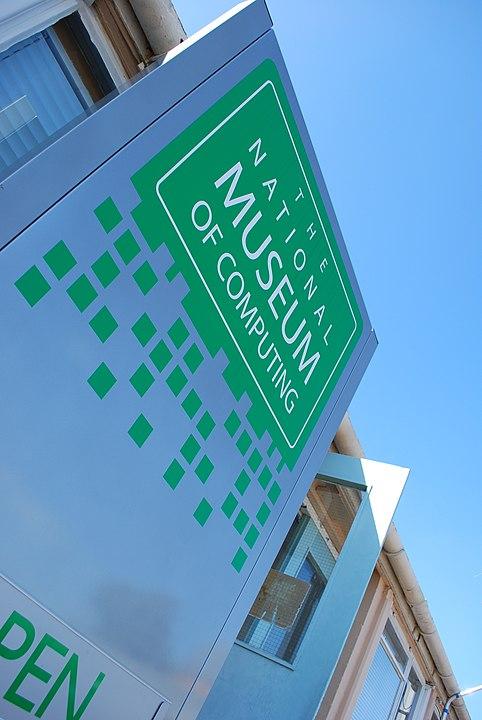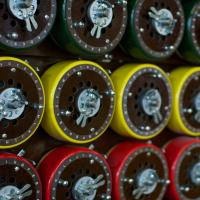The National Museum of Computing is an independent trust situated within the Bletchley Park complex (and is, in fact, easier to find than the mansion - we got lost and confused and ended up at this museum rather than the one we intended to visit!) that charts the development of computing from the first Turing-Welchman Bombe machine (used to break Enigma messages) to modern day. Found in one of the unassuming industrial units on the site, which also happens to be the world's first purpose-built computer centre, its collections are astounding and include the oldest working computer in the world. It is little wonder it is considered 'one of England’s top 100 ‘irreplaceable places’'.

It is also, possibly, one of England's geekiest places. Upon entering one is hit by the smell of ionised air and machine grease, and there follows room after room of displays which are, quite frankly, bewildering for the uninitiated. The exhibits are impressive: aside from the above-mentioned 'Witch' there are replicas of most of the important computers from the Second World War through to the modern day, and the museum has done its best to include information on each of them. But to someone who spends most of her time in the seventeenth century, much of this may as well have been written in Greek. Luckily, there were so many staff and volunteers willing and able to talk in-depth about these computers - and to explain them in terms simple enough for children to understand - that at times it felt we were being given our own, personal guided tour. It is the commitment, and enthusiasm, of these staff that made the visit to the museum worthwhile - and who prevented one scared historian from finding a dark corner to hide in!
As we progressed through the decades into the 1970s and 80s exhibits, we started to find ourselves in more familiar territory, and to feel old as a result. Suddenly, there were devices recognisable from childhood, like the ZX Spectrum and some very clunky Amstrads. And we could play games on them: Manic Miner, Lemmings, Space Invaders, and Colossal Cave were just a few blasts from the past. It would theoretically be possible to while away several hours here, and the children were certainly happy, although it somewhat defeated the object of getting the kids out of the house and away from their screens. For those with a more serious background in computers, there was the chance to program on original machines in a variety of old languages. There were also displays of office equipment, including the awful dot matrix printers, mobile phones, and an interesting gallery on air traffic control, which has a long association with Bletchley.
It was only a whistle-stop visit - there is only so much geekery that a historian can take, and even my computer-programmer husband's eyes started to glaze over by the end - and although there's a small shop selling a limited selection of refreshments, the environment was not conducive to lingering. But it was an unusual and interesting way to spend an hour - particularly when tied into a visit to the main Bletchley museum - and, I imagine, would be an absolute must-see for the computer enthusiast.
Image credit: Andy Armstrong


